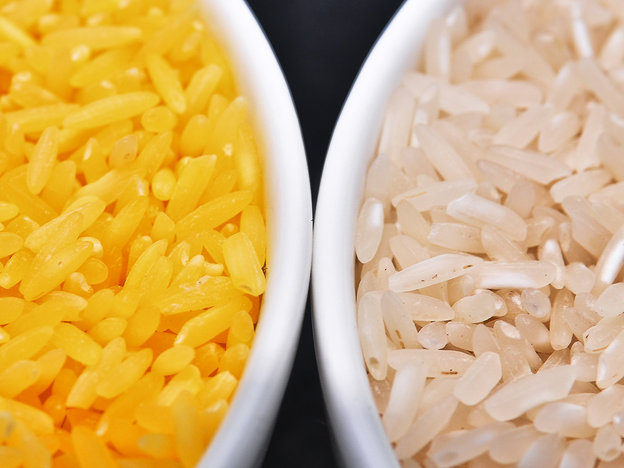
Post by Dan Charles, The Salt at NPR Food (9/17/13)
Tufts University announced Tuesday that one of its researchers broke ethical rules while carrying out a study of genetically modified "golden rice" in China.
According to the Tufts report, the scientific conclusions of the study remain valid. The researchers had found that a single bowl of this rice can supply more than half of a child's daily vitamin A requirement — the most convincing evidence so far that golden rice can, in fact, be a useful tool in fighting malnutrition. But when the study was published last year, anti-biotech campaigners at Greenpeace China immediately called it a scandal, accusing the research team, led by Tufts' Guangwen Tang, of feeding children a "potentially dangerous product" without informing their parents of exactly what the children were eating.
Chinese media started investigating and found evidence that Tang and her collaborators in China had cut corners when it came to informing Chinese parents and Chinese regulatory authorities about details of the study. According to a report in Nature magazine, Chinese reporters found an email from a Chinese official involved in the study in which he explained that he was dropping any mention of genetic modification in some documents presented to the children's parents because it was "too sensitive."
In December of last year, the Chinese government announced that it was punishing several China-based researchers who were involved in the study, removing them from their jobs. According to the government, the researchers didn't obtain proper approvals before carrying out the study.